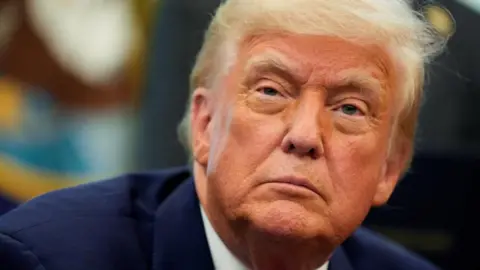The ongoing conflict between Ukraine and Russia remains a focal point of international diplomacy, with significant implications tied to the involvement of global leaders. One of the most critical figures in this scenario is former U.S. President Donald Trump, whose future actions regarding Ukraine could decisively influence the trajectory of the situation. Amidst this delicate political landscape, recent events have set the stage for potential negotiations.
President Volodymyr Zelensky of Ukraine has approached a recent proposal from Russian President Vladimir Putin for direct talks with cautious optimism. Putin’s offer, made late at night, suggests a meeting in Istanbul, scheduled for the following Thursday. Instead of outright rejecting the proposal, Zelensky characterized it as a “positive sign” indicating that Russia is beginning to consider a resolution to the ongoing war. This diplomatic overture implies that Zelensky perceives a glimmer of hope, despite previous demands for a 30-day ceasefire that were seemingly ignored by Moscow.
Zelensky’s attempt to frame Putin’s call for talks as a constructive move reflects a broader strategy to avoid positioning either party as an obstruction to peace, particularly in the eyes of the U.S. administration. The dynamics of international relations necessitate that both leaders, however reluctant, display a willingness to engage in dialogue under Trump’s scrutiny. Trump himself reacted to these developments with optimism, posting on his Truth Social platform that a “potentially great day for Russia and Ukraine” might be on the horizon.
However, the intricacies of this situation are manifold. While negotiations could lead to a significant diplomatic breakthrough, they also come with strings attached. Putin articulated a desire to address what he perceives as the “root causes of the conflict,” which could include Ukraine’s ambitions for closer ties to the West—a concern for the Kremlin, which does not favor Kyiv’s trajectory toward European integration. Specifically, Russia has reiterated conditions for any ceasefire, such as a cessation of Western military aid to Ukraine. This demand complicates the situation further, as it risks diminishing Ukraine’s defensive capabilities against continued Russian aggression.
Recent reports underscore the urgent needs of Ukraine in the face of escalating military actions. The Ukrainian military urgently requires a reliable supply of air defense systems, particularly given the increasing frequency and intensity of drone and missile attacks on cities, including the capital, Kyiv. Warnings from the U.S. Embassy in Kyiv highlight a “significant risk of air raids,” heightening the urgency of securing military support from allies. The situation is precarious, with concerns that Russia may deploy advanced weaponry, such as hypersonic missiles, which could drastically alter the balance of power on the ground.
The upcoming dialogue between Zelensky and Putin in Istanbul becomes a pivotal moment in shaping the future of this conflict. The fundamental question arises about Trump’s approach: will he see through Putin’s potential attempts to manipulate the peace process, or will he leverage his relationship with the Russian leader to press Ukraine into concessions? Should Trump decide to support Russia’s narrative, it could lead to high-stakes negotiations where Ukraine might be pressured to yield to Moscow’s terms without adequate guarantees for its sovereignty.
This critical juncture exemplifies the complex interplay of diplomacy, military strategy, and political narratives at a worldwide scale. The balance between maintaining national integrity and engaging in potentially fraught diplomatic exchanges is fraught with peril. As developments unfold, the world watches closely, anticipating how Trump’s decisions will resonate through the corridors of power in both Kyiv and Moscow, and whether they will bring an end to hostilities or prolong the conflict.



